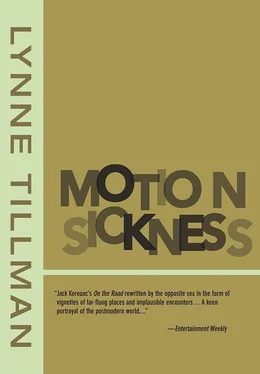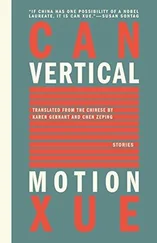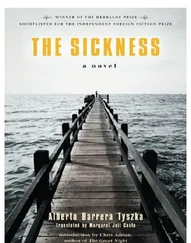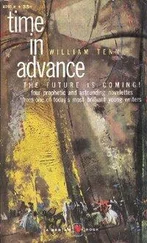She is eager to begin her trip. The future was the desert, as the future now is outer space, a future that science-fiction writers long ago colonized and have been waiting impatiently for us to enter. Perhaps going into the desert would be going backward since time might be curved, and anything can be the present, past or future. If this is true then my not going into the desert — to lose myself, my mind — is not just a matter of cowardice or lack of adventurousness. I may have already been there or will be going there. Still, I think about it often. Losing myself in the desert. Abandoning everything, being abandoned. Taking up residence in a small town in Iowa where no one would know me. I’d cut off all ties to my past, I’d use the frontier, I’d become a frontier. I’d be known as that woman at the edge of the real last frontier. I’d have a front porch in my frontier version of reality. I’d sit on that front porch and gaze out at limitless skies and pastures. Relativity would be as close as I came to relatives. Not that I have many, just my mother really. I owe her a letter.
From the patio I stare at the azure and pink sky, the sky sipping at the sun the way I sip at my whiskey soda whose two ice cubes have melted. Melted ice cubes under melting suns, days melting into nights, transient often indistinguishable moments, and why Irish Pete, Pete of Amsterdam, should walk into this scene now, walk in from nowhere, why he does and where he’s come from is just one more of those boundaryless moments. I’m glad I’m drinking Irish whiskey, I think, and close my book, Philby’s My Silent War .
Like Sal he recognizes me immediately, and like Charles he is wearing different clothes, a different fashion, which offers a very different image from the one Pete struck in Amsterdam. A newly coined image, a newly minted stamp. In any case Pete’s got on a linen jacket, baggy trousers and is carrying a small men’s pocketbook. He is, he tells me, here on business but the business is clearly not my business. Import/export, I ask good-humoredly. ‘Course, yeah, Pete answers. The call for prayer sounds and reminds me of Istanbul, of Mr. Yapar and the minarets, of a hailer of images. I ought to send a postcard to Cengiz. I suppose Pete didn’t meet Cengiz, or Charles, but I won’t ask. He and I order more to drink and sink deeper into our chairs. He didn’t go east, to Istanbul, or if he did that’s not what he’s telling me. He went south to Barcelona with some friends, then came here and is staying with people in the Socco. A rich German’s house, he says. Which may account for his new clothes. He doesn’t mention Olivier and neither do I, a lesson I learned from the English brothers. Pete may tell me in time, I content myself with that, leaving him on the veranda or patio, picking up my keys from Mr. Mrabet, the urbane concierge who, I’ve decided, has a developed sense of the ridiculous. I’m not sure why I think this.
My simple room has a remarkable view of the harbor. Like Pete, the English brothers might appear on the horizon out of nowhere, and I’d be happy to see them. Though they wouldn’t come by boat. And no Madame Butterfly is watching for them. If one of them were to dock, though, it’d be Paul, I think. Jessica might show up. She must be well into her pregnancy, by now. Unless she’s miscarried or had an abortion. Perhaps the birth was extremely premature and she had three tiny babies, triplets. What would happen if all three looked into the mirror at the exact same moment?
In the distance the green-blue water moves toward and away from land, a gentle rolling motion that in a second could become roiling and rocking. Still water runs deep but constant movement assures one of continuity though this is against, always against, one’s better judgment. I choose a postcard for the English brothers, my mother and Charlotte. The same one, of the hotel patio.
I lie on the bed and look out the window then at the room’s whitewashed walls with their message of past and faded glory. Faded glory isn’t failure. This room is a palimpsest, hiding many layers of lives, which can be counted by the number of times the room has been repainted. Like a tree’s rings. The hotel was once owned by French people, but is now in Moroccan hands. Mr. Mrabet may be an owner or an employee. If an owner, a small businessman, he’d be subject to, as my father warned, the fluctuations of the market. Which must be worse than the banal vagaries of love. Mr. Mrabet, responsible for all this, or Mr. Mrabet, a Willy Loman, subject to all this.
The hotel’s past elegance is an oasis, a fantasy. It produces delicate troubling thoughts as does looking into the face of a very very old man or woman. Reading faces, reading walls. Some friends say it’s easy to read me, the involuntary expression on my face. The only recourse might be plastic surgery but if I had it done this young I’d have to do it every five or ten years and end up with no epidermal elasticity at all, with no ability to smile. Or with a fixed smile. A forehead much too high, not necessarily noble like Bette Davis’s as Queen Elizabeth, or it’d be unearthly like Peggy Lee’s. And I’d be permanently dissembled.
From my window, the people at the tables below are flat, and if I were to draw them they’d lack any true proportion and I wouldn’t know where the vanishing point would be. I don’t have that kind of perspective. It could be anywhere. As in those old cartoons by Fleischer where the character jumps out of the ink bottle and draws himself, then jumps back in at the end of the story, leaving a blank screen.
Chapter 11. Schadenfreude
“Today only exaggeration can be the medium of truth.”
— Theodor Adorno
BARCELONA
Gregor’s loft is in an abandoned factory on a narrow sheet in a worker’s section of town that’s being modernized. But in a good way, he tells me, not like in New York. The old and poor won’t get pushed out. It will be better here, with more services. He hasn’t been back in Germany — he’s from Cologne — in several years. I’m not staying with him; I didn’t want to. There’s an inexpensive hotel in the center of town, a sliver of a building on a sheet across from an impressive church whose bells ring on the quarter hour. Its bell tower can be seen from my window. A Hunchback of Notre Dame setting. It suits me better. Gregor’s generosity can easily be abused. I don’t want to be one of those to do it. The hotel manager, Mr. Del Rio, speaks no English and what I speak to him is a combination of German, Spanish and French, a few words of each, and he finds this amusing. At least I hope he does when he doesn’t find it frustrating. I’m reading Highsmith’s Ripley’s Game .
Gregor reads voraciously and keeps a diary that he writes in scrupulously each day at a desk surrounded by small fileboxes in which are stored annotated comments about what he’s read. He’s disciplined, a vegetarian, and his home is nearly bare, except for the vast wall of books which I’ve referred to as his Berlin Wall. Irony, yes? he asks. All of Freud, in German and English, Melanie Klein, Christa Wolf, Hegel, Marx, Handke, books on Hollywood film, Dickens, Stendhal, Flaubert, Resnais, Duras, biographies galore. He tells me he sometimes is transfixed in front of his books, awed and dismayed. He has put money into a few films, acted in some, written a play about, he says, his alienated generation, and receives monthly checks from his father. Guilt money, Gregor calls it. Though he doesn’t like to see people — he is, he insists grimly, compulsively counterphobic — he knows many and keeps a stack of notebooks near his telephone, with names and addresses of the interesting people he’s met. All over the world, I suppose, or at least the Western one.
Читать дальше












